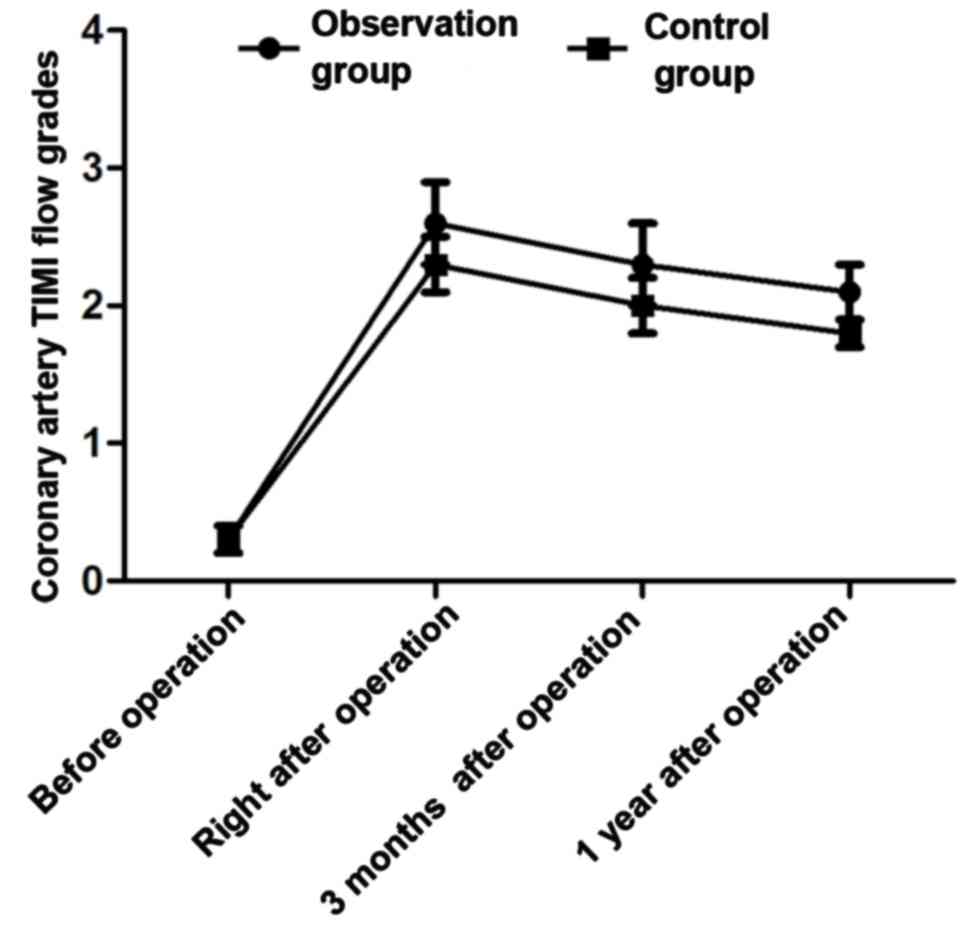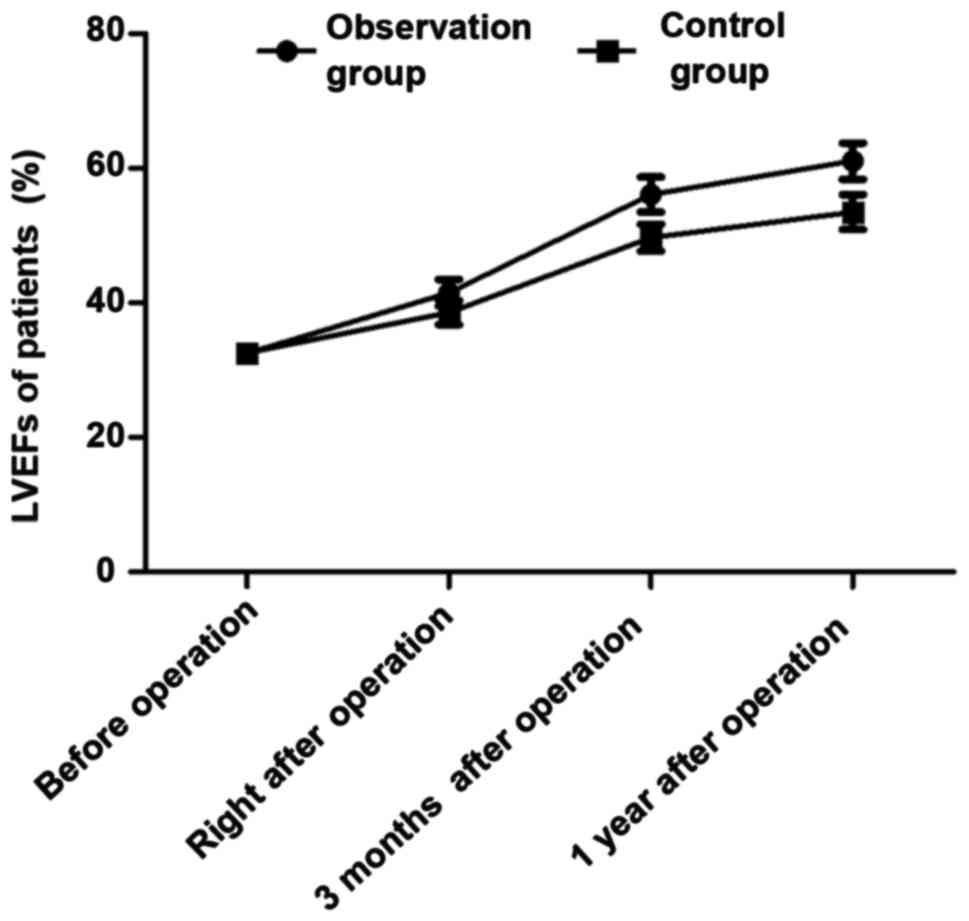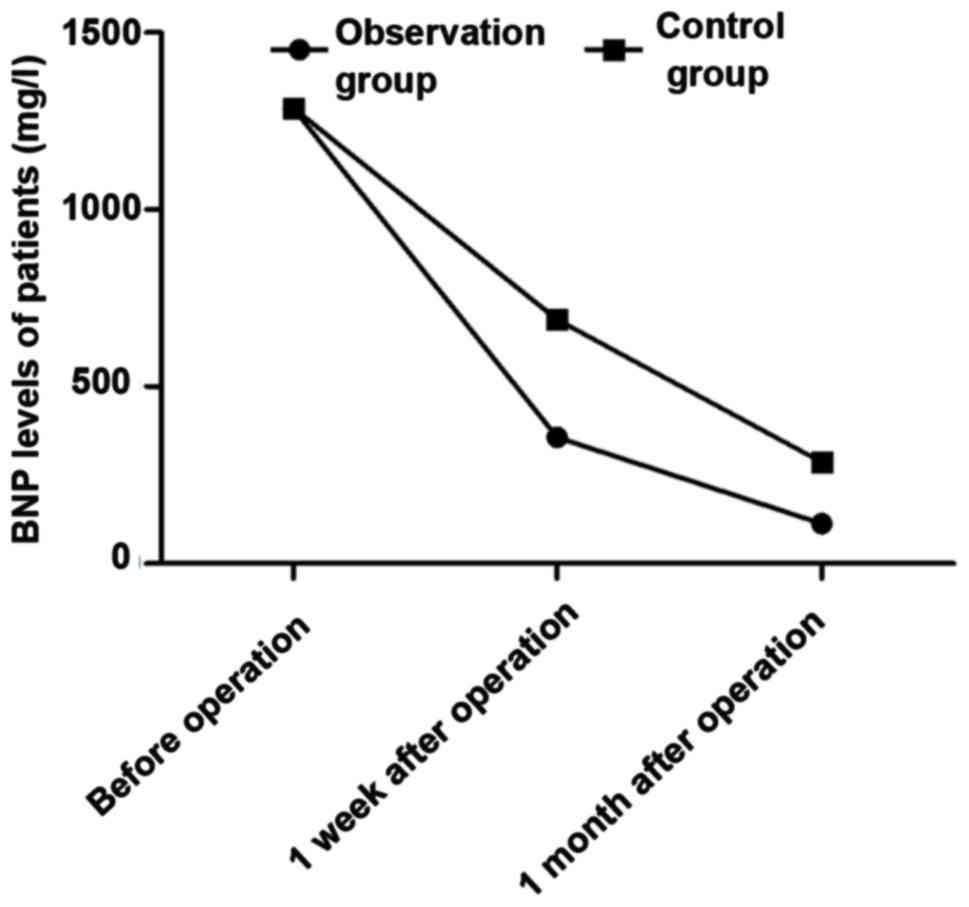|
1
|
Batra G, Friberg L, Erlinge D, James S,
Jernberg T, Svennblad B, Wallentin L and Oldgren J: Antithrombotic
therapy after myocardial infarction in patients with atrial
fibrillation undergoing percutaneous coronary intervention. Eur
Heart J Cardiovasc Pharmacother. 6:36–45. 2018. View Article : Google Scholar
|
|
2
|
Chen J, Wang LY, Deng C, Jiang XH and Chen
TG: The safety and efficacy of oral anticoagulants with dual versus
single antiplatelet therapy in patients after percutaneous coronary
intervention: A meta-analysis. Medicine (Baltimore).
96:e80152017.https://doi.org/10.1097/MD.0000000000008015simple10.1097/MD.0000000000008015
View Article : Google Scholar : PubMed/NCBI
|
|
3
|
Cannon CP, Bhatt DL, Oldgren J, Lip GYH,
Ellis SG, Kimura T, Maeng M, Merkely B, Zeymer U, Gropper S, et al:
RE-DUAL PCI Steering Committee and Investigators: Dual
antithrombotic therapy with dabigatran after PCI in atrial
fibrillation. N Engl J Med. 377:1513–1524. 2017. View Article : Google Scholar : PubMed/NCBI
|
|
4
|
Hwang KK, Eom SY, Lee SY, Kim SM, Cho MC,
Kim YJ, Seung KB, Jeong MH and Bae JW; other Korea Acute Myocardial
Infarction Registry Investigators, : Atrial fibrillation on
admission is related with higher mortality in ST-segment elevation
myocardial infarction patients. Int Heart J. 58:486–494. 2017.
View Article : Google Scholar : PubMed/NCBI
|
|
5
|
Zhai HB, Liu J, Dong ZC, Wang DX and Zhang
B: Current use of oral anticoagulants and prognostic analysis in
patients with atrial fibrillation undergoing coronary stenting.
Chin Med J (Engl). 130:1418–1423. 2017. View Article : Google Scholar : PubMed/NCBI
|
|
6
|
Ispas AF, Mangin L, Paziuc A and Belle L:
Unexpected evolution of a non-stenotic lesion in the left main
coronary artery of a patient with non-ST-segment elevation
myocardial infarction. Cardiovasc Diagn Ther. 7:340–344. 2017.
View Article : Google Scholar : PubMed/NCBI
|
|
7
|
Choi HI, Ahn JM, Kang SH, Lee PH, Kang SJ,
Lee SW, Kim YH, Lee CW, Park SW, Park DW, et al: Prevalence,
management, and long-term (6-year) outcomes of atrial fibrillation
among patients receiving drug-eluting coronary stents. JACC
Cardiovasc Interv. 10:1075–1085. 2017. View Article : Google Scholar : PubMed/NCBI
|
|
8
|
Topaz G, Flint N, Steinvil A, Finkelstein
A, Banai S, Keren G, Shacham Y and Yankelson L: Long term prognosis
of atrial fibrillation in ST-elevation myocardial infarction
patients undergoing percutaneous coronary intervention. Int J
Cardiol. 240:228–233. 2017. View Article : Google Scholar : PubMed/NCBI
|
|
9
|
Gwyn JCV, Thomas MR and Kirchhof P: Triple
antithrombotic therapy in patients with atrial fibrillation
undergoing percutaneous coronary intervention: A viewpoint. Eur
Heart J Cardiovasc Pharmacother. 3:157–162. 2017. View Article : Google Scholar : PubMed/NCBI
|
|
10
|
Romanov A, Martinek M, Pürerfellner H,
Chen S, De Melis M, Grazhdankin I, Ponomarev D, Losik D, Strelnikov
A, Shabanov V, et al: Incidence of atrial fibrillation detected by
continuous rhythm monitoring after acute myocardial infarction in
patients with preserved left ventricular ejection fraction: Results
of the ARREST study. Europace. 20:263–270. 2018. View Article : Google Scholar : PubMed/NCBI
|
|
11
|
Bogacki P, Kabłak-Ziembicka A, Bryniarski
K, Wrotniak L, Ostrowska-Kaim E, Żmudka K and Przewłocki T: Triple
anticoagulation therapy in patients with atrial fibrillation
undergoing percutaneous coronary intervention - real life
assessment. Postepy Kardiol Interwencyjnej. 12:303–313.
2016.PubMed/NCBI
|
|
12
|
Chaudhary N, Bundhun PK and Yan H:
Comparing the clinical outcomes in patients with atrial
fibrillation receiving dual antiplatelet therapy and patients
receiving an addition of an anticoagulant after coronary stent
implantation: A systematic review and meta-analysis of
observational studies. Medicine (Baltimore). 95:e55812016.
View Article : Google Scholar : PubMed/NCBI
|
|
13
|
Gibson CM, Mehran R, Bode C, Halperin J,
Verheugt FW, Wildgoose P, Birmingham M, Ianus J, Burton P, van
Eickels M, et al: Prevention of bleeding in patients with atrial
fibrillation undergoing PCI. N Engl J Med. 375:2423–2434. 2016.
View Article : Google Scholar : PubMed/NCBI
|
|
14
|
Zehir R, Tekkesin AI, Haykir N, Velibey Y,
Borklu EB and Gumusdag A: Peak troponin I level predicts new-onset
atrial fibrillation in patients with myocardial infarction. Clin
Invest Med. 39:E213–E219. 2016. View Article : Google Scholar : PubMed/NCBI
|
|
15
|
Prami T, Khanfir H, Deleskog A, Hasvold P,
Kytö V, Reissell E and Airaksinen J: Clinical factors associated
with initiation of and persistence with ADP receptor-inhibiting
oral antiplatelet treatment after acute coronary syndrome: A
nationwide cohort study from Finland. BMJ Open. 6:e0126042016.
View Article : Google Scholar : PubMed/NCBI
|
|
16
|
Bagai A, Wang TY, Goodman SG, Fisher HN,
Welsh RC, Dery JP, Zhang X, Zhu YE, Cheema AN, Dehghani P, et al:
Canadian Observational AntiPlatelet sTudy (COAPT) Investigators:
Longitudinal treatment patterns with ADP receptor inhibitors after
myocardial infarction: Insights from the Canadian Observational
AntiPlatelet sTudy. Int J Cardiol. 228:459–464. 2017. View Article : Google Scholar : PubMed/NCBI
|
|
17
|
Cannon CP, Gropper S, Bhatt DL, Ellis SG,
Kimura T, Lip GY, Steg PG, Ten Berg JM, Manassie J, Kreuzer J, et
al: RE-DUAL PCI Steering Committee and Investigators: Design and
Rationale of the RE-DUAL PCI Trial: A prospective, randomized,
phase 3b study comparing the safety and efficacy of dual
antithrombotic therapy with dabigatran etexilate versus warfarin
triple therapy in patients with nonvalvular atrial fibrillation who
have undergone percutaneous coronary intervention with stenting.
Clin Cardiol. 39:555–564. 2016. View Article : Google Scholar : PubMed/NCBI
|
|
18
|
Dekkers OM, Horváth-Puhó E, Cannegieter
SC, Vandenbroucke JP, Sørensen HT and Jørgensen JO: Acute
cardiovascular events and all-cause mortality in patients with
hyperthyroidism: A population-based cohort study. Eur J Endocrinol.
176:1–9. 2017. View Article : Google Scholar : PubMed/NCBI
|
|
19
|
Hudzik B, Szkodziński J, Hawranek M,
Lekston A, Poloński L and Gąsior M: CHA2DS2-VASc score is useful in
predicting poor 12-month outcomes following myocardial infarction
in diabetic patients without atrial fibrillation. Acta Diabetol.
53:807–815. 2016. View Article : Google Scholar : PubMed/NCBI
|
|
20
|
Masuda M, Nakatani D, Hikoso S, Suna S,
Usami M, Matsumoto S, Kitamura T, Minamiguchi H, Okuyama Y, Uematsu
M, et al: OACIS Investigators: Clinical impact of ventricular
tachycardia and/or fibrillation during the acute phase of acute
myocardial infarction on in-hospital and 5-year mortality rates in
the percutaneous coronary intervention era. Circ J. 80:1539–1547.
2016. View Article : Google Scholar : PubMed/NCBI
|

















